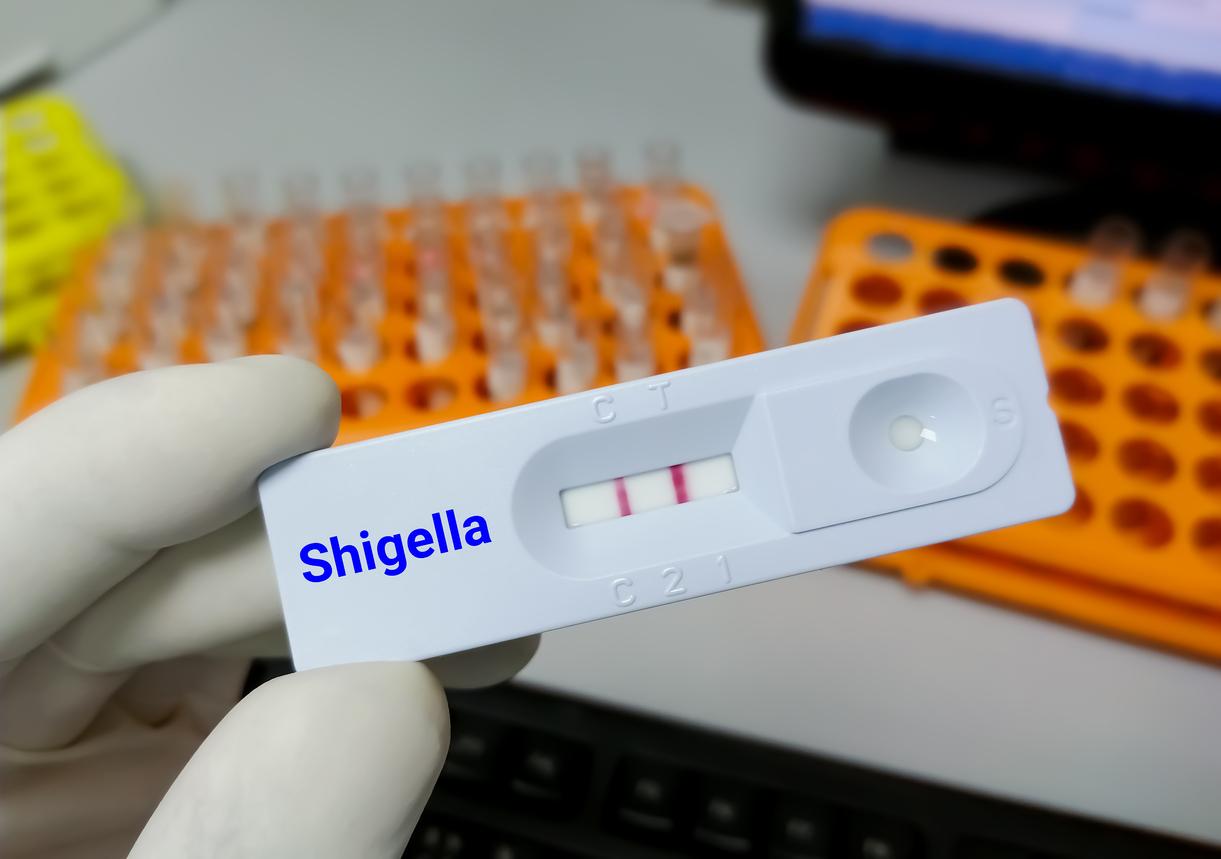The bacterium Shigella sonnei, responsible for the highly contagious diarrheal disease called shigellosis, is increasingly resistant to antibiotics, according to the Institut Pasteur.

- Researchers have discovered highly antibiotic-resistant strains of the bacterium Shigella sonnei.
- This bacterium is one of the species responsible for shigellosis, a highly contagious diarrheal disease.
- Currently, only two antibiotics are still effective according to scientists.
Every year, hundreds of thousands of deaths worldwide are due to shigellosis, according to National Institute of Health and Medical Research (Inserm). This disease, also called bacillary dysentery, is an infection of the intestine caused by bacteria of four species called shigella. In France, it is the Shigella sonnei which circulates mainly. The latter worries the Institut Pasteur, because it is increasingly resistant to antibiotics.
Shigella sonnei bacterium becomes ultra-resistant to antibiotics
The symptoms of shigellosis are diarrhea lasting 3 to 4 days, which ceases spontaneously. But some patients may have more serious signs like bloody diarrhea. Generally, a treatment antibiotic is necessary to treat moderate to severe cases or to stop transmission between people in epidemic contexts.
But, according to a study published in the journal NatureCommunications, some strains of Shigella sonnei have become highly resistant to antibiotics. To achieve this result, the researchers analyzed more than 7,000 strains of Shigella sonnei and epidemiological information collected between 2005 and 2021.
Ultra-resistant strains (XDR strains for extensively drug-resistant) were first identified in samples of Shigella sonnei dating back to 2015.”Then, the scientists found that the proportion of these XDR strains, resistant to almost all antibiotics recommended for the treatment of shigellosis, increased significantly until reaching a peak in 2021: 22.3% of all strains of Shigella sonnei were highly resistant that year (corresponding to 99 cases)”, can we read on the Institut Pasteur press release.
Only two antibiotics still effective for shigellosis
After an analysis of these XDR strains, scientists observed that they all belonged to “the same evolutionary line became resistant to a key antibiotic (ciprofloxacin) around 2007 in South Asia.“Then they spread around the world, especially in France. For severe cases of the disease, there are only a few effective antibiotics left: carbapenems or colistin. These must be administered intravenously. “VSwhich makes the treatment more aggressive with a more complex follow-up in a hospital setting”warns the Pasteur Institute.
Among the cases observed in France, some had traveled to South Asia or Southeast Asia and others were men who have sex with men (MSM). “This observation should be taken into account by clinicians and laboratories in the context of consultations for sexually transmitted infections (STIs), with the practice of a systematic antibiogram in the event of isolation of Shigella for better patient care. infected with these highly resistant strains”says the research organization.
















